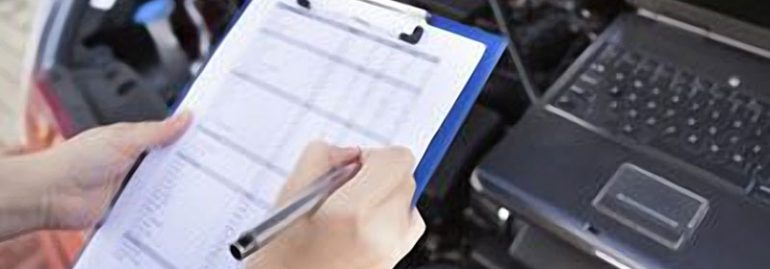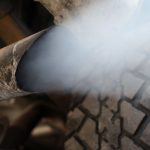Car owners have to deal with emissions testing at one point or another. Whether you are going to drive a new vehicle or an older option, you’ll need to focus on this if you want to have full registration.
Depending on where you live, there may be emission requirements that you have to deal with. Emissions testing matters, and yet many people aren’t sure what it is, or how it works.
There are several different elements to this, and trying to compartmentalize it may be difficult at first glance. With that in mind, the following may help you understand why this is an important thing, and how to deal with it.
The Simplest Explanation
In the past, going back some years, getting testing meant that a mechanic would be testing the tailpipe of a vehicle. With a special tool, tailpipes would get tested for dirt, dust, and much more.
The exhaust that a car would push out would either go with a pass or fail. There were some companies in the past that would promise passing or they would pay for it, etc. That is not done anymore. Today it’s rare to see tailpipe checking.
Today, modern mechanics utilize analyzers to test vehicles. A diagnostic connector is placed into the car, and codes come through to tell the mechanic if anything is going on.
Once the monitors have been run, a mechanic can help with clearing things up. Most modern cars have an on board diagnostic system that will tell whether or not something is going on, and what may need fixing.
Tailpipe Testing Is Still Done
There are some companies that will still perform tailpipe testing. While it’s not common, it’s still used from time to time. In this type of test, a mechanic will run simulated tests, and will look for trace element, so that the run creates exhaust.
There are 5 gasses that are tested for, and whatever comes through will showcase whether or not emissions will work.
The exhaust gets sampled, the gasses are tested, and if it passes, paperwork is written up and that’s it. Registration can be done in most states with this form, assuming the car is older.
Why Are Emissions Tested?
One of the most common questions that people ask about emissions, and testing is simple, why is this done? The main reason why this is done is because car manufacturers are forced to comply with pollution standards. This helps identify which cars need to be updated, fixed, and updated.
This is to reduce ozone destroying gasses. After 1990, federal acts around the United States, and other countries were passed to force car manufacturers to create more efficient vehicles, so that emissions would get reduced so as to not cause further pollution.
Without testing, cars can bring about serious problems. Pollutants that come out of the car could lead to serious problems with elements in the car, including filters, catalytic converters, and even combustion chambers.
Excess pollutants can cause a great deal of heat in a vehicle, and cause a great deal of problems down the line.
This not only becomes hazardous to the environment, but also the vehicle as well.
When Should You Get Testing Done?
First and foremost, if you’re purchasing a new car, you won’t have to work with this. In fact, the car dealership that you’re going to be working with will have all of these tests done for you and will get ready to give you a car upon payment.
That includes purchasing used cars, and vehicles along those lines. New cars generally don’t need additional testing for car registration or anything like that.
However, you’re going to find that once you have your vehicle for some time, including older cars, you’ll end up dealing with a lot of issues as a result.
There are no hard and fast rules in regards to emission testing. You’ll find that older cars, however, will require a bit more attention than most newer cars.
Most often, mechanics recommend that emissions testing should be done within gaps of 2 years. Some recommend annual checkups. That is usually done with vehicles that are from 1981 and above.
Older vehicles before 1981, recommendations usually require testing every single year.
Depending on the state, country, and area that you live in, testing could very well be required to get registration.
What If You Avoid Testing?
Some people don’t get testing often. In fact, many cars on the road desperately need a check up and a tune up. If you were to avoid testing for several years, your car will not run efficiently.
Vehicles that do not get tested frequently often times start to build up grime, and gunk in the engine.
When vehicles start to break down, the mileage will suffer, and cycles of the engine will start to cause problems. When valves break down, and filters start to combust, exhaust could very well cause elements to come into the car.
If nothing else, it’s very important to work with emissions testing in order to ensure vehicles run efficiently and you get the most out of the mileage and engine that you have.
Without that, you’ll eventually have a break down, and fixing problems due to emissions could very well cost a great deal of money.
Failing Emissions Testing
There are some instances in which cars could very well fail emissions testing. If you fail in the United States, depending on the area that you live in, you may not be able to get license plates.
You will not be able to register, and that means that you’ll need to get your vehicle fixed.
A clean, cleared car will be required in order to get a re-test. If the re-test doesn’t pass, then it’s back to the mechanic to figure out what the problem may be.
Some states, such as Illinois, will give you a waiver if you spend upwards of $450 on repairs, and still do not pass.
If nothing else, the main importance of testing is to ensure that you get registration and plates for your vehicle. Old or new, it’s imperative to get testing.






